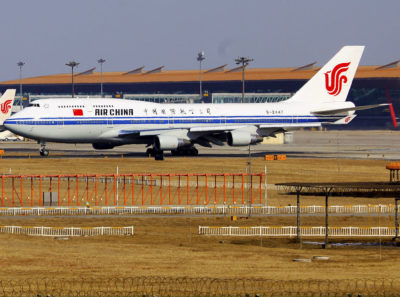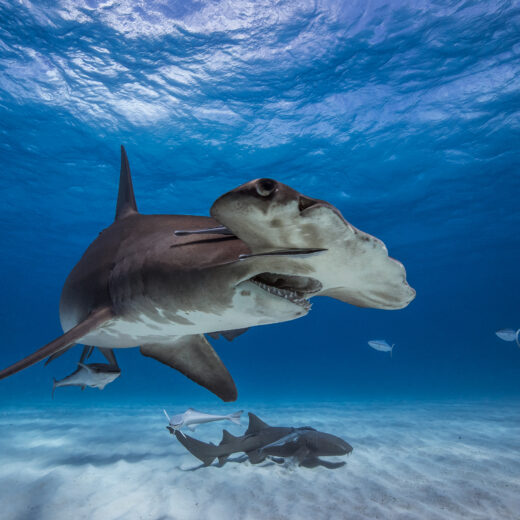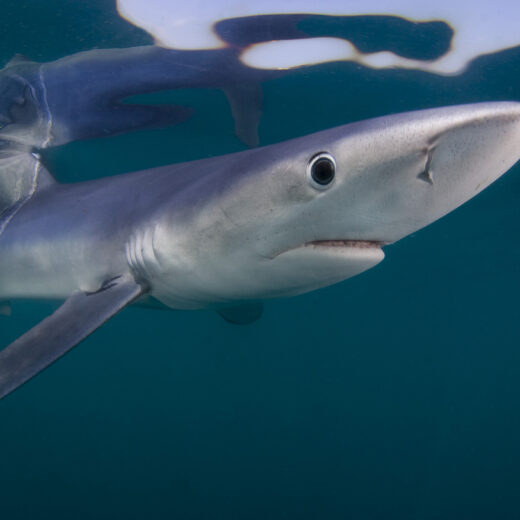
BY: ALEX HOFFORD
HONG KONG SAR, 06 January 2017 – The week after China announced it would end domestic ivory trade, Air China today announced its ‘No Shark Fin’ carriage policy.
“Air China Cargo has a long standing commitment to playing our role in a more sustainable world. We were one of the first airlines in China to raise the awareness of the unsustainability of the global shark trade. We understand the community’s desire to promote responsible and sustainable marine sourcing practices, and this remains important to Air China Cargo’s overall sustainable development goals. Therefore, on the issue of shark fin, we reiterate our “No Shark Fin” carriage policy.” – Air China Press Release
Last year the government published shark fin import data indicated an 82% decline in shark fin imports to China between 2012-2015. This followed an extensive campaign led by Yao Ming and WildAid and supported by state media CCTV and Xinhua and a ban on shark fin at state banquets.
China’s flag carrier now joins the ranks of at least 35 other airlines around the world in committing to ban the transportation of shark fin as cargo and is the first mainland Chinese airline to ban shark fin, for its environmental stewardship.
Alex Hofford, Wildlife Campaigner, WildAid, said “We applaud Air China for taking an ethical stance on this issue to help protect sharks and help our oceans..”
Air China’s firm action is part of the Chinese authorities broader efforts to apply greater environmental regulations on its citizens and its corporate sector. In July 2016, the Chinese state-owned shipping giant ‘China COSCO Shipping Corporation Limited’ also banned shark fin, and in 2015, the Chinese government launched a campaign to develop what it calls “ecological civilization” (生态文明) amongst its citizens. Most recently, just one week ago China announced an end to commercial ivory sales by the end of this year.
However, compared to Chinese government efforts to stamp out the shark fin trade on mainland, the Hong Kong SAR government lags far behind. WildAid calls on the Hong Kong SAR government to do more and better, in order to stamp out the cruel and unsustainable shark fin trade rather leaving it essentially unregulated doing the bare minimum to satisfy its international legal obligations under CITES*. Hong Kong SAR also lags behind the mainland in a proposed five year phase out of ivory trade rather than the one year adopted by the mainland.
Full enforcement of shark fin bans by airlines and shipping lines is vital to their success. Airlines and shipping lines should strictly check that shark fin cargo presented for shipment is not being simply mislabeled and shipped as “seafood”, “dried seafood” or “dried marine products” etc. Carriers should also be alert to deception and require exporters to supply the correct eight digit World Customs Organization (WCO) Harmonized Customs Code to airlines, shipping lines and customs officers as required by IATA*, so that abuse and leakage of threatened shark fin onto the market cannot occur.
WildAid is also calling on FedEx to take action to save sharks, in the way its rival UPS did so in 2015 and will be approaching China Southern Airlines, China Eastern Airlines, Beijing Capital Airlines, Hainan Airlines, Xiamen Air, Tianjin Airlines, Shenzhen Airlines, Shandong Airlines, Shanghai Airlines, SF Airlines and all other airlines follow Air China’s leadership in protecting sharks by cutting off the supply chain of shark fin to significant markets for endangered species such as Hong Kong SAR and Guangzhou.
The full list of 36 airlines that have pledged to stop shipping shark fin is as follows:-
Air China, Air Canada, Cathay Pacific Airways, Dragonair, HK Express, China Airlines, British Airways, Iberia, Kenya Airways, American Airlines, Sri Lankan Airlines, Virgin, Jet Airways, COPA, Air France, Swiss, Thai Airways, Cebu Pacific, Singapore Airlines, Etihad Airways, Air Seychelles, Philippine Airlines, Air Asia, Garuda Indonesia, Korean Airlines, Asiana Airlines, Emirates, Eva Air, Qantas, Air New Zealand, Qatar Airways, KLM, FinnAir, Lufthansa, Lan Chile / LATAM Airlines Group & Aeroméxico.
* CITES (the Convention on International Trade in Endangered Species of Wild Fauna and Flora) is an international agreement between governments. Its aim is to ensure that international trade in specimens of wild animals and plants does not threaten their survival.
* IATA, The International Air Transport Association.
Stay in touch and get the latest WildAid updates.
SIGN UP


